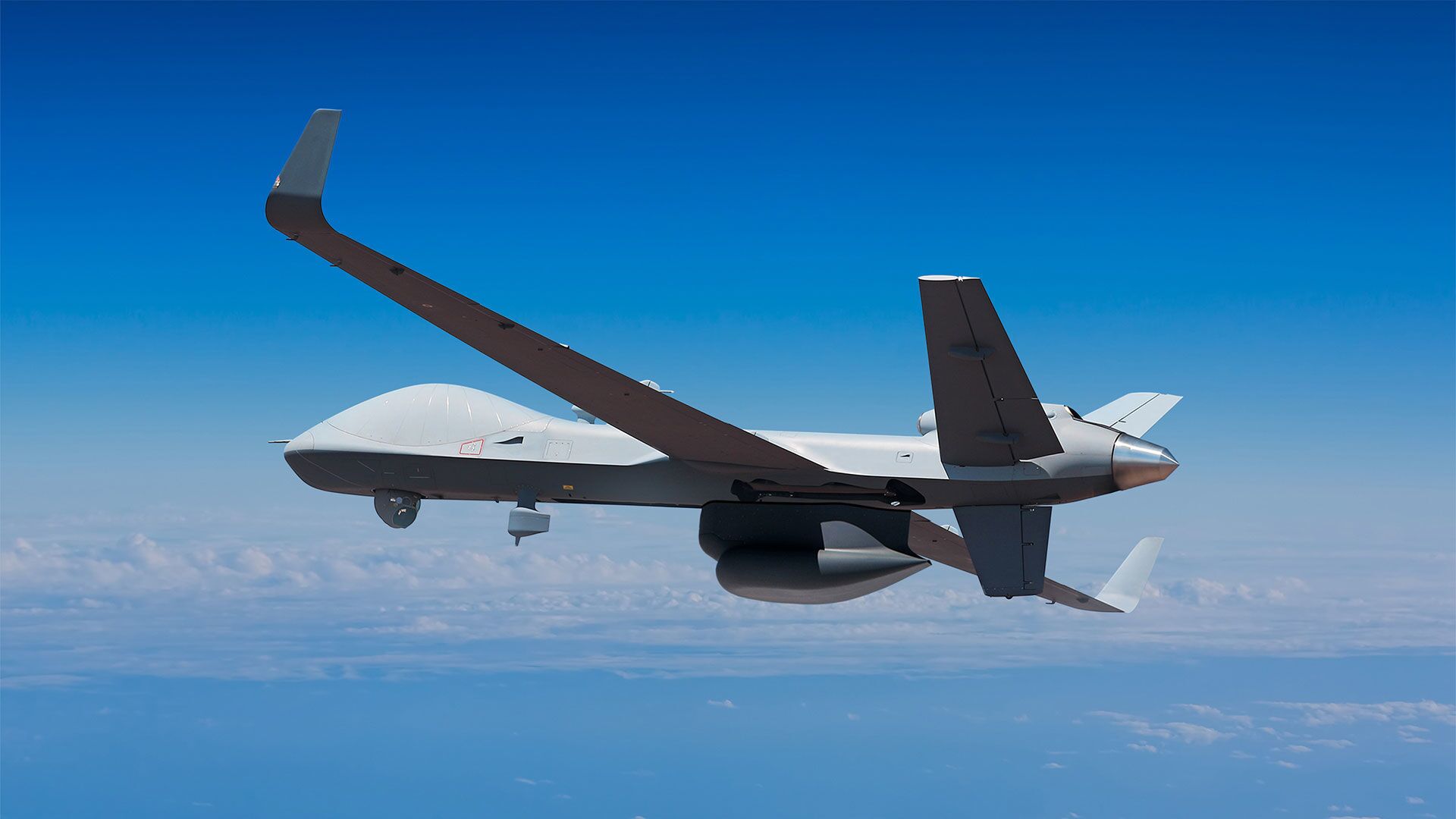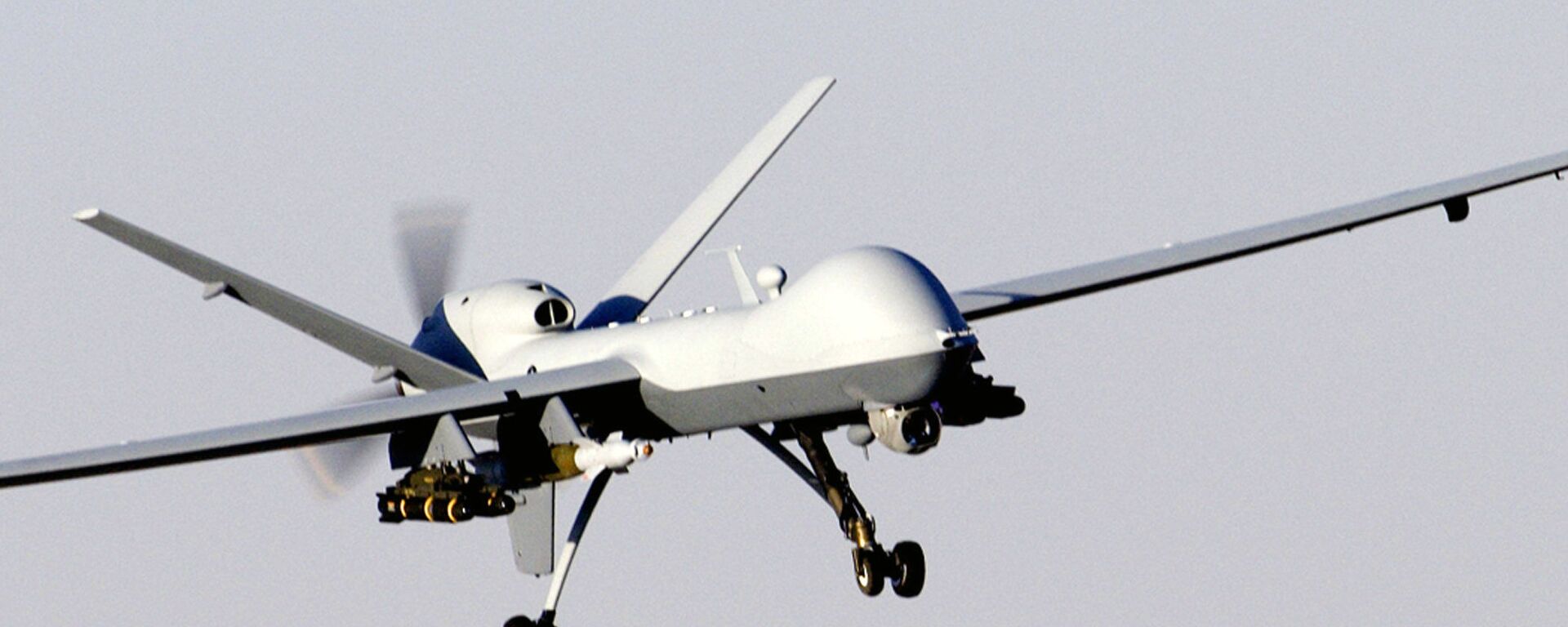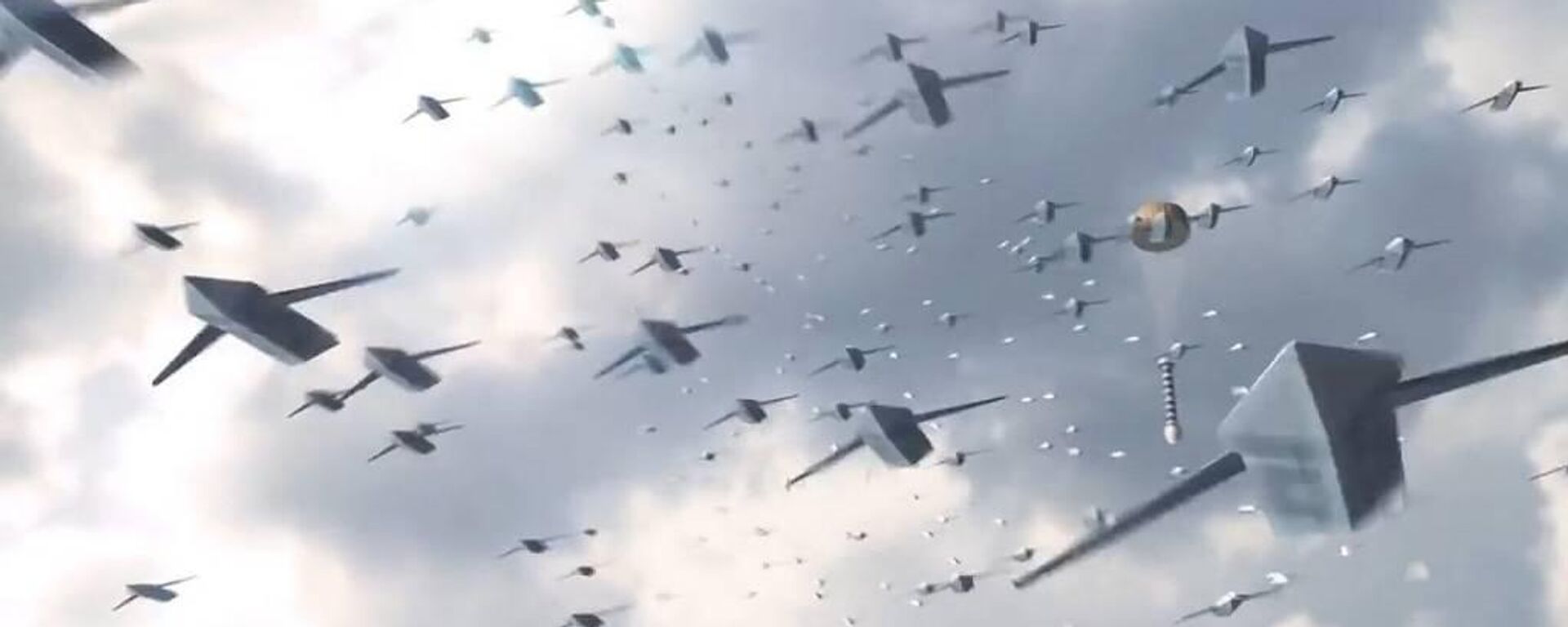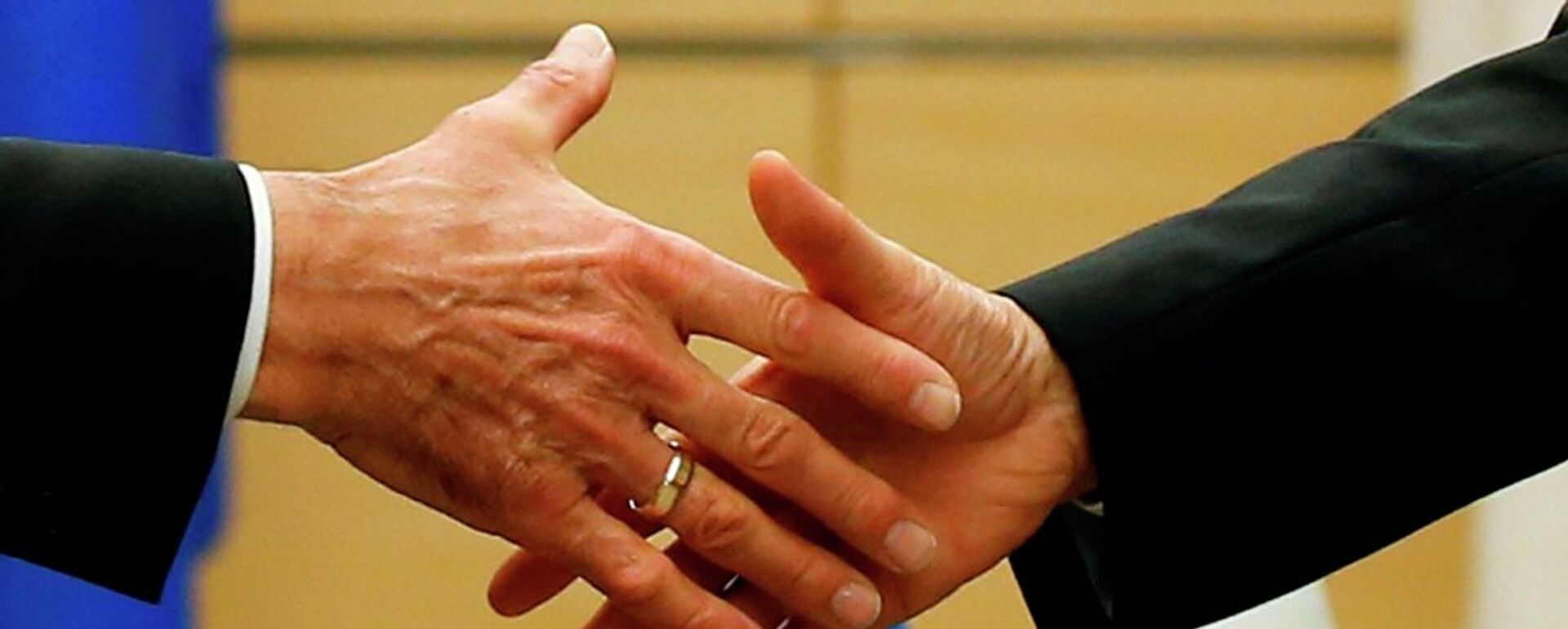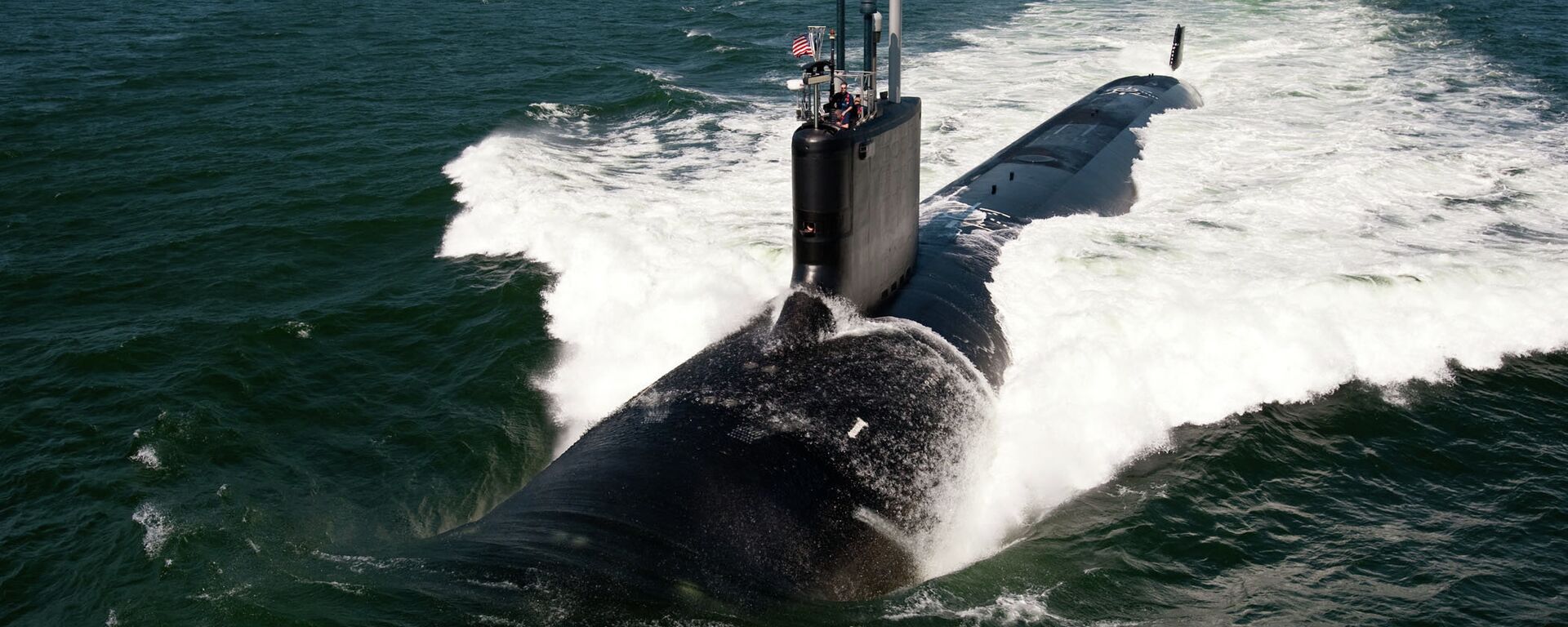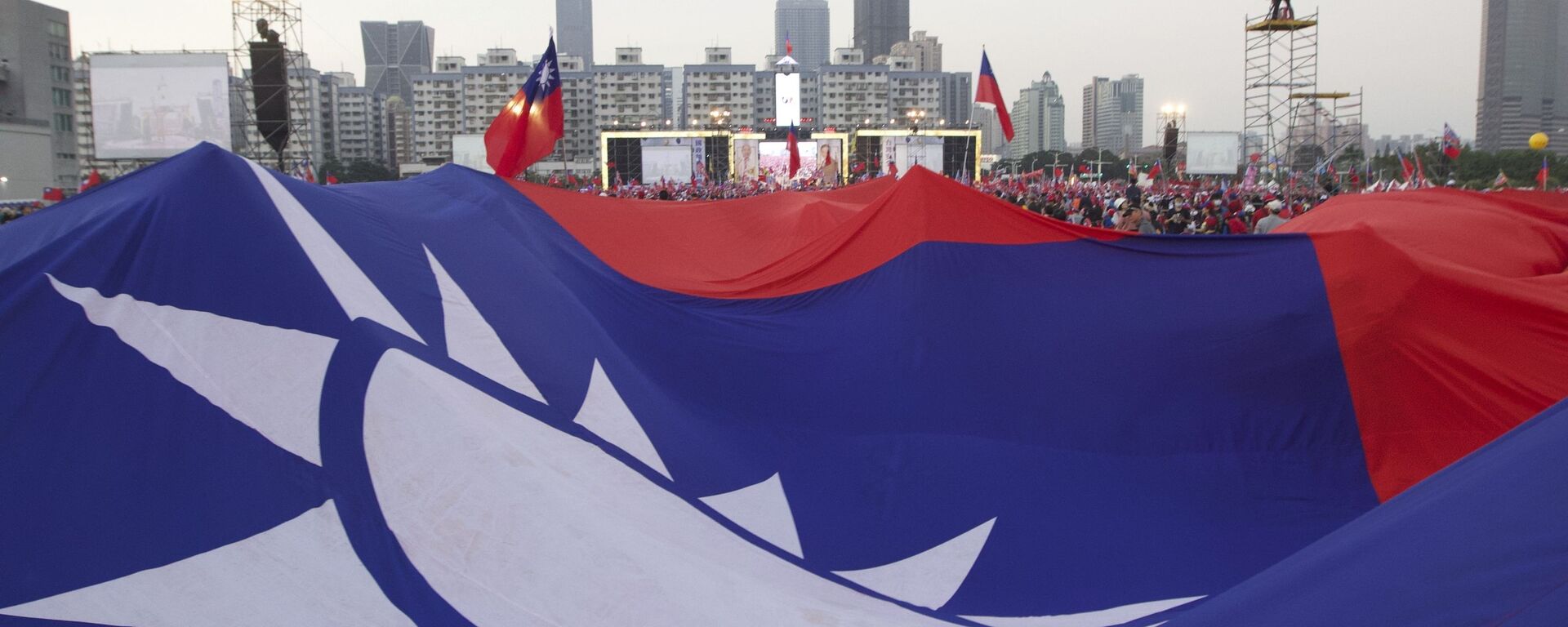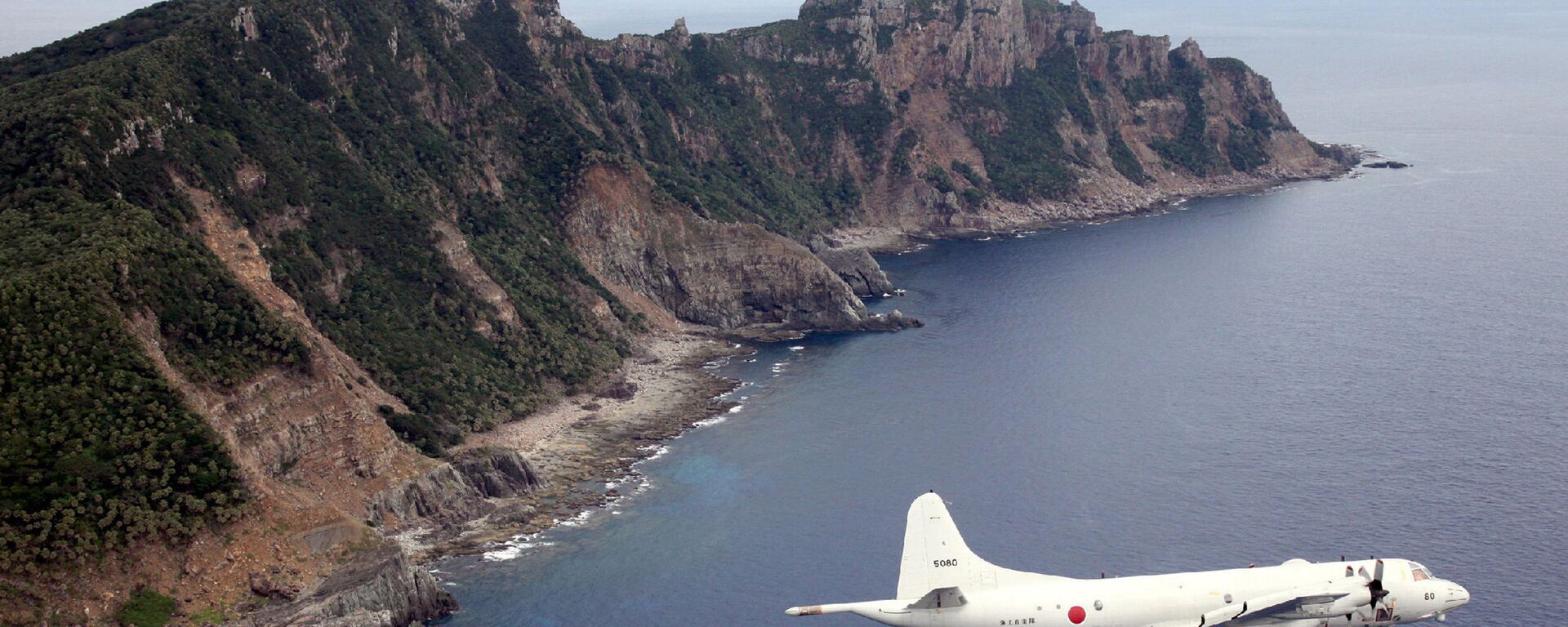New Japan-Taiwan Drone Fleet is Part of US Plan to Contain China
18:54 GMT 08.06.2023 (Updated: 12:47 GMT 19.06.2023)
Subscribe
The US is said to be delivering four MQ-9B Sea Guardian drones to Taiwan, thus enabling the island to share real time surveillance data with the Americans and Japanese. Sputnik sat down with retired US Army Lieutenant Colonel Earl Rasmussen to discuss the reported development and its potential consequences.
Citing four individuals familiar with the project, the Financial Times broke on Thursday that US defense contractor General Atomics is expected to deliver four unmanned aerial vehicles (UAVs) to Taipei beginning in 2025. The UAVs in question are MQ-9B Sea Guardians, a maritime version of the Reaper drone.
"I think it's pretty significant as far as reconnaissance capabilities," Earl Rasmussen, a retired lieutenant colonel with over 20 years in the US Army and an international consultant, told Sputnik. "Essentially we're lining the entire east coast of China with reconnaissance, unmanned reconnaissance capabilities. Their range is over a thousand miles. So they can interlink fairly well depending on how many are actually in flight at the same time."
"But they've got eight in Japan, which just got delivered last November. So they're relatively new in Japan, probably ordered within the last two to four years. Then recently also you've got a partnership between a [South] Korean manufacturer of drones and General Atomics [who] signed a cooperation agreement. Whatever is happening in Korea, you're going to see some interoperability or joint capabilities or perhaps, potential a Reaper presence, a more drone presence in Korea. And then you've got these four here."
Taiwan's MQ-9B Sea Guardian to Become Part of US Network
The MQ-9B Sea Guardian is a remotely piloted aircraft system (RPAS) that can be configured to conduct various maritime intelligence, surveillance, and reconnaissance (ISR) missions, including anti-surface warfare; anti-submarine warfare; airborne mine countermeasures; long-range strategic ISR; and over-the-horizon targeting, to name but a few.
The unmanned aircraft is designed to fly over the horizon for over 30 hours (depending on configuration), thus enabling joint forces to deliver real-time situational awareness anywhere in the maritime domain – day or night, as per the manufacturer.
"The discussions to sell them [to Taiwan] took place for minor thing in 2020," Rasmussen remarked. "So now we're just getting some confirmation on the finalization of the sale and the interoperability that's going to be in place. So that's the key thing. These all are going to be interoperable, they're sharing data and real time information."
It was reported that in Taiwan, the aforementioned MQ-9B UAVs would operate alongside the island's fleet of Lockheed P-3C Orion anti-submarine and maritime surveillance aircraft which have reportedly been used for surveillance missions in the disputed South China Sea since at least 2015, as per The Diplomat.
It appears as if the US is building a sort of unmanned aircraft network in the region, according to Rasmussen. He referred to the fact that in late April, the US for the first time deployed its lethal drones to the Philippines for joint drills. A pair of MQ-9 Reapers took part in intelligence, reconnaissance and surveillance missions during the annual Balikatan exercise.
"So now think of the whole geographical thing from Japan, [South] Korea, stretching South through Taiwan, to the Philippines," the US Army veteran said. "Basically, they're trying to put a presence or a surveillance capability. And we already sail our fleets, kind of questionably, through the freedom of sea movement which, by the way, [the US is] not a party to the agreement in the UN, but [it] use[s] that to justify sailing [American] ships to the South China Sea. And now we've got the East China Sea that, I'm sure, will be involved."
US Containment of China
According to Rasmussen, the US' ongoing military buildup in the Asia-Pacific region constitutes a clear provocation against China, especially given that Beijing sees Taiwan as an inalienable part of the People's Republic. Meanwhile, NATO's plan to establish a liaison office in Japan is likely to add more fuel to the fire.
One should bear in mind that China has never threatened to invade Taiwan, or Japan, or any other countries of the region, the military expert emphasized, stressing that the US buildup in the region has nothing to do with "defense."
"This is about US containment of China," Rasmussen emphasized. "It's locking these countries into providing a US military presence with these countries, dependent on their technology as well. I'm sure there are other agreements that surround that. So, it's not about the defense of them. Maybe you can say it's about arms sales for our defense industry, but these are minuscule. They were talking about what? Four drones? They go for like four drones. I think you're talking about $55-60 million. It is about 20 million per piece, probably get a quantity discount. So it's really not about that. It's more about integrating in the US presence there and in this case enhancing the surveillance capabilities and I think targeting capability is necessary for the US."
The containment incentive appears to fit into an overall plan of enhanced deterrence against China voiced by Admiral John C. Aquilino, United States Navy commander, US Indo-Pacific Command, during his testimony before the US House Armed Services Committee on April 18, 2023.
Aquilino noted that USINDOPACOM planned to step up interoperability with AUKUS, the Quad diplomatic partnership, and Five Eyes Anglophone intelligence organization to strengthen their positions in the Asia Pacific. In particular, the commander referred to forming a number of military "clusters" in the region: the Guam cluster; the Japan cluster; the Philippines cluster; and the Australia cluster. Furthermore, the US is pushing ahead with the nuke submarine deal designed to arm Australia with nuclear-powered attack subs.
In this grand design, the US is basically "creating a situation similar to what was done in Ukraine towards Russia," remarked Rasmussen.
"So you're basically walking these countries into a very, very dangerous path," he said. "The US is using this to provoke China in a very, very dangerous situation."
Taiwan 2024 Election May Upset US Applecart
It's likely that the inhabitants of the island of Taiwan have already realized that the situation is going in the wrong direction, continued Rasmussen.
"I think that's probably why the local elections recently in Taiwan went so much against the separatist party," the US military expert said. "[There is a] huge swing in sentiment. Taiwan realizes their future is that the US is not going to pick up trade differences with Taiwan that they have with China. China is their future from an economic development perspective. It just is the fact and it's very, very concerning when we use political leadership that we have influence on to undermine the desires and the concerns of the actual population. They really don't care about the population. They don't care what they are concerned about. They'll control the news flow, twist it however the narrative is. But it's all about the US. It is all about the US global containment of China in this situation just like it was targeted at Russia in Ukraine."
International observers don't rule out that Taiwan's governing Democratic Progressive Party (DPP) may lose to a "pro-China" Kuomintang (KMT) in the January 2024 election. The KMT did well during the November 2022 "9-in-1" elections, and won 13 of the top political posts in local governments across 22 cities, counties, and municipalities, while the DPP won only five.
Over the past several months, KMT leaders have made several trips to mainland China, emphasizing that the Chinese on both sides of the Taiwan Strait should live in peace. Previously, under KMT leader Ma Ying-jeou, who governed the island between 2008 and 2016, Taiwan signed 23 treaties on cross-strait trade with China, opened direct flights, schools, and facilitated business exchanges.
"Taiwan will never see complete independence as a separate country," said Rasmussen. "Taiwan is part of China. That's how it's recognized internationally, the majority of people in Taiwan view that they have their own kind of government, similar to Hong Kong. China seems fine with that, but the US is using this to provoke China in a very, very dangerous situation. I think we're in the early stages of this. But it's not surprising: the presidential elections of Taiwan are next year. I'm sure [the US] want[s] to try to push something forward as quickly as possible over the next 12 months. And this is a dangerous direction that this administration is taking us on globally."
How Will China React to US-NATO Buildup in the Pacific?
"China is going to be furious," Rasmussen noted when asked how Beijing would react to the MQ-9B deal. "I mean, they knew this is going to be coming, but I think they're going to be furious. I think they're not going to be, which I'm sure they were suspecting that once these things were delivered, they're going to be interoperating with the Japanese drones as well, but just this official announcement that they're going to be interoperating is just another irritant to the Chinese. And the Chinese are going to be very upset."
Remarkably, the Western media broke the news about the drone deal amid reports that US Secretary of State Antony Blinken is looking to visit China in the coming weeks.
"I think Blinken's trip will be canceled again," the US military veteran remarked. "So, although they hadn't formalized it, there were discussions that he was going to be going to China. Either they'll let them come in and the Chinese will lecture him."
Washington beefing up its presence in the Asia-Pacific along with its NATO allies and partners will obviously facilitate further rapprochement between China and Russia, according to Rasmussen.
"I think it pushes the Chinese further towards the Russians, strengthens the Russian and Chinese ties because they see the same thing happening to them that happened to Russia through the Ukrainian side," he said. "You've got a whole discussion of the concept of establishing a NATO presence in the Pacific. Not the Atlantic. The Pacific. We've got some insane people in the leadership right now, and, unfortunately, that's just escalating things. And I just hope things don't spiral out of control, but they easily could."
However, the Taiwanese Ministry of National Defense (MND) on Thursday denied media reports about plans to exchange real-time data from naval reconnaissance drones with Japan and the United States.
"The MND has not yet been informed of plans to share real-time data from naval reconnaissance drones with the US and Japan as has been reported by some media outlets. We would like to kindly request that due diligence be exercised in verifying the source of information to prevent misleading the public," the ministry said on Twitter.
The the situation over the island has been escalating recently after Taiwanese President Tsai Ing-wen met with US House Speaker Kevin McCarthy in April.

